I found Fantastic Four to be utterly awful.
There. I said it. You were wondering whether or not to see it, weren’t you? And you expected me to give you a little impartial taste of what might be waiting for you in the theatre if you were to go.
Well, don’t go. It’s worth neither your time nor your money. I know that you expected me to go into some clever little explanation about the past of the franchise, what fans expected in this latest reboot, and what the strengths and weaknesses of the movie were. And that’s originally what I started to do… but in the end I couldn’t force myself to even pretend to be impartial about this movie. It was awful. Point-blank, hands-down, case closed, end quote.
So instead of writing a strictly traditional spoiler-free review, where I list off that there were only three funny jokes or or that there was no Stan Lee cameo or that you needn't bother sitting through the credits, perhaps you readers would be better served if I explained the real reason[s] WHY this reboot actually turned out worse than the original Fantastic Four.
Every single superhero in existence, whether Marvel or DC or otherwise, has one thing in common: that one thing is an origin story. Movie fans know the concept only too well, because the majority of all superhero franchises that come to theatres have to begin with origin stories. We have to know how these superheros came to be.
That said, there are certain story elements that are absolutely inherent to a decent origin story for a superhero, so let's look at a small group of factors that we'll call, "The Phenomenal Five."
1. Something sciency and/or magical happens to a fairly ordinary person.
The term “superhuman” implies that super abilities have been added to a normal person. You’ll see this a bit more often in Marvel stories than in the DC universe — where icons like Superman and Wonderwoman are roughly born special already. But even in DC, characters like Kal-El have to learn to control and adapt and even hide their powers as they grow up, which brings me to my next point.
2. The hero[es] must struggle to understand and control their new superpower[s].
This is quite possibly more important even than explaining where the abilities came from in the first place. The whole point of an origin story is to show how a person with no powers became a person with powers. It helps us relate to them, understand them, and imagine that we ourselves could be capable of accomplishing the same thing. Even DC showed the invincible, born-that-way Clark Kent struggling to master his abilities when he first hit puberty in Man of Steel. It’s nearly-impossible for us as normal people to relate to somebody who can do things that we can’t do, so the origin story gives us the chance to grow with the superhero and live vicariously through them.
3. The main character has to be intrinsically human and flawed.
This is the first thing they teach you on Day One of any film or screenwriting class you may ever take. An imperfect protagonist is a cornerstone of any story, but in superhero stories it’s still especially important. The audience needs to relate to the protagonist not just before they become a superhero, but afterwards as well. Even after becoming extraordinary, the main character shouldn’t be perfect (because nobody is), and that’s why he/she needs a character flaw. This flaw can (and should) also be the central reason why the main character is constantly defeated until the climax, when they finally learn to embrace or overcome that flaw in order to triumph.
4. The main character has to want something.
Even if it’s just to be left alone, the main character must still want something in order to drive their actions. He or she doesn’t have to be trying extremely hard to get what they want, but the point is that their actions will at least be coherent. They'll go from point A to point B and we'll understand why they didn't go to point C instead.
5. The villain has to want something, too.
That something is usually the opposite of what the hero wants, hence the conflict. The difference is that, whether or not the hero is a highly-motivated person, the villain definitely is. The villain is perhaps the most driven individual in the whole story.
That’s just five of the most basic factors of any superhero origin story. So how did The Fantastic Four do? Let’s take a look.
1. Does something sciency and/or magical happen to a fairly ordinary person?
Yes… and no. I’ll admit that, if nothing else, this version of the origin story is pretty easy to swallow. The scientific source of the powers is believable, and we’re actually shown why each individual person received a different power (as opposed to the “we-have-different-personalities-so-we-have-different-powers” cliché).
BUT. Three of the four people who receive said powers aren’t strictly ordinary to begin with. They’re child prodigies: technical geniuses each with an IQ possibly beyond that of Tony Stark, or so we’re supposed to believe. While that may make the story more plausible, it also makes the characters immediately less-relatable. I don’t know about you, but I didn’t build a portal to another dimension in my garage when I was ten. Or twenty. Or ever.
2. Do the heroes struggle to understand and control their new superpowers?
No. No they don’t.
I’m not joking. Five minutes after we see the main characters waking up with these new abilities, we cut to months later where they’ve already mastered said abilities, and all of the fun and games is over! The first Fantastic Four film was criticized because the heroes spent 90% of the running time just playing around with their new capabilities. But in this reboot, they barely spend thirty seconds of the adventure even learning what their powers are! One minute they’re normal, the next minute they’re blasted with science-stuff, and the next minute they’re perfectly-trained in the art of invisibility or stretching or flaming flight.
For heaven’s sake, Fox! Does somebody need to sit down with you and define what an origin story is? We might as well define “pilot episode” for you while we’re at it…
3. Is the main character personally flawed?
He isn’t perfect, no.
But could I tell you what “his problem” is? Also no. Reed doesn’t have an inner demon that haunts him or defeats him over and over all the way through the movie until the climax. And there’s a reason why that lack of a flaw is so painful. In the climax, when all is lost and Reed is trapped by Von Doom and isn’t strong enough to free himself, he doesn’t win because of some great internal realization, or because he finally masters some technique that he’s never been able to conquer. He isn’t freed by the friends he pushed away. He doesn’t out-smart his enemy using some intrinsic or personal knowledge of science. He just wins, because… because he tries harder, I guess. That’s it. That’s the big moment. Reed wins because he tries hard. Yippee.
4. Does the main character want something?
At first, maybe. The beginning of the film follows Reed through a load of ridiculous jargon, welding, and blueprints in his pursuit of science. One could argue that he wants to make a difference in the academic world (and he even says so himself).
But the problem that keeps coming up throughout the movie is that Reed constantly makes choices that don’t line up — especially if the advancement of science is his goal. Sure, Reed’s smart enough to build a portal to another dimension at age ten… but he doesn’t think to patent his work, or even show it to any adults until his senior science fair (I repeat: a public-school science fair. That’s a great place to earn academic credibility). Sure, Reed wants to travel to another dimension in the name of science, but when he goes he doesn’t even bring a camera or a kit for taking samples!
And that’s not all. After promising to break his friends out of a government facility, Reed runs off into the uncharted snowy wilderness and inexplicably survives without any gear or warm clothing. Then he manages to cross the entire country and spend months “off the grid” in Central America, and never bothers to even try to rescue his friends. In fact, they’re finally the ones that have to come and hunt him down. Then, after fighting them all the way back to the states, he then agrees to join them again without any argument or complaint whatsoever.
I could keep going, but I’ll stop there. My point is, I haven’t seen any fictional character making such wishy-washy decisions since Finding Nemo.
5. Does the villain want something?
Sort of. The problem is, once we finally meet him, his desires also fluctuate and make things very confusing. The villain is (of course) Dr. Doom, a shady human mastermind who is barely nice even when he’s a normal human being. However, when everything goes wrong in the alternate dimensional (thanks to him, I might add), he’s accidentally left for dead in the chaos. When a new crew of scientists travel to the dimension again ages later, he immediately races to them and begs to be taken home. However, as soon as they shuttle him back to earth, he looks around and then decides, “I don’t like this place anymore. I think I’ll destroy it and go back to my glowing wasteland.” Then he proceeds to return to the alternate dimension, and then open a portal to earth that he could have opened the whole time while he was trapped there in the first place.
So, in conclusion, Fantastic Four didn't manage to come up with a single match to any of the "Phenomenal Five" things that make a good origin story.
I hate to be so blatantly negative and whiny about this reboot. I mean, the production design was decent enough. The science looked more or less solid. And it even featured a black superhero, as well as a lead female who doesn’t end up with a love interest at the end. I’ve been waiting for ages for a movie with just one of those things.
But that doesn’t excuse this film from failing at its primary purpose, any more than a cool paint job can excuse a car without wheels.
Fantastic Four was a fantastic flop, and if anyone gave it two and a half stars out of five, that would be generous. However, if nothing else, at least we superhero fans got a chance to step back and remember what makes a good origin story in the first place. Because this movie was definitely not it.


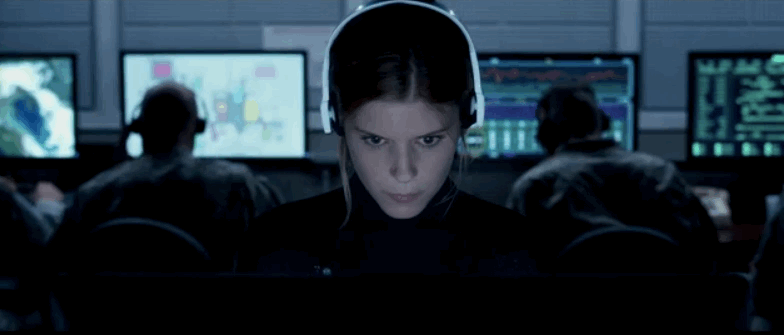
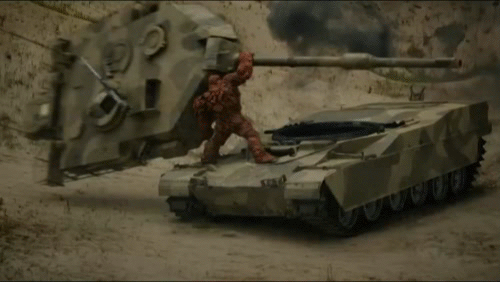
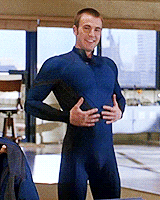
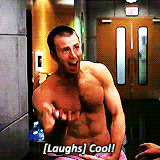
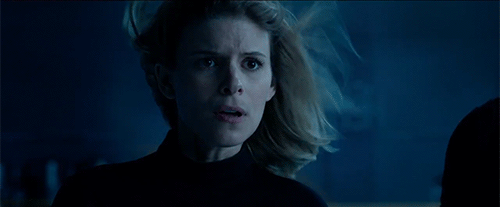


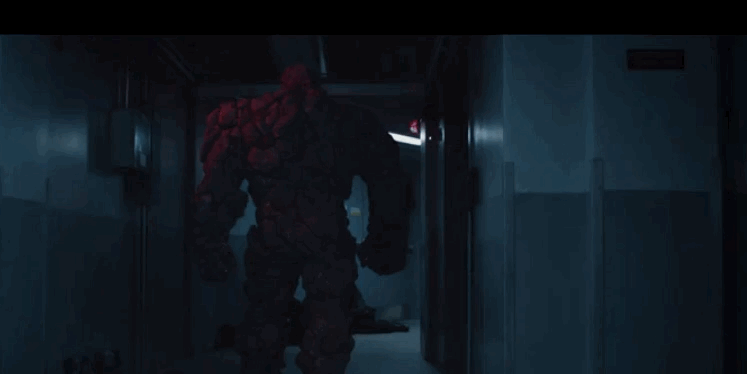

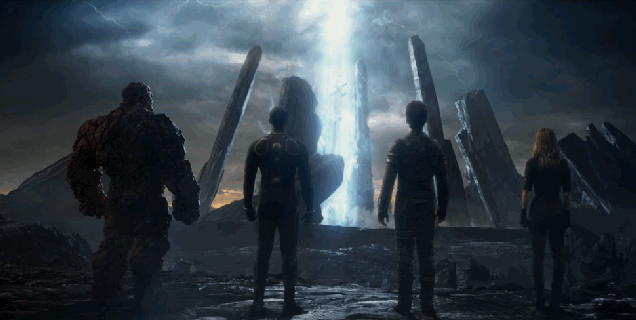

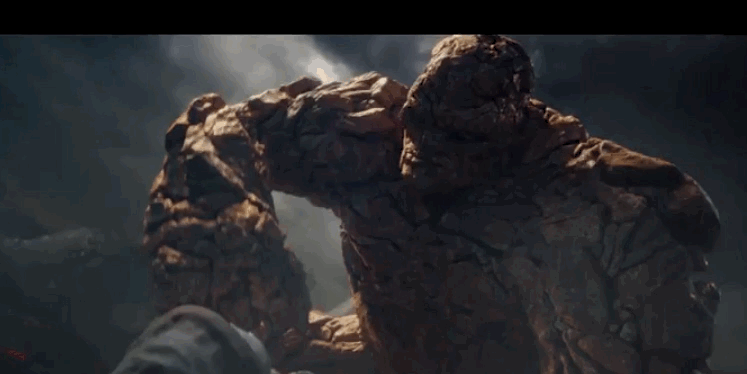

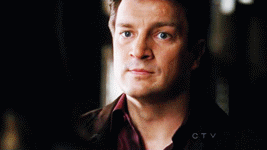









Ugh, what a disappointment! I was really looking forward to Fantastic Four because the first one wasn't very good, either. I mean, watching Chris Evans wobble around with a pink coat around his midsection was hilarious, of course, but beyond that it didn't impress me muchly. That the reboot didn't save it makes me even more disappointed, but I suppose even Marvel has to have its bad movies. I've been told it's gotten a 9% on Rotten Tomatoes (which seems a little low, even from what you said), but still... I'm in no eager rush to see this movie right now.
ReplyDelete